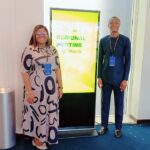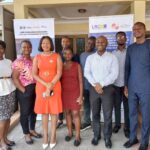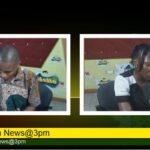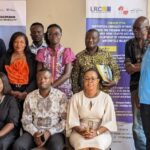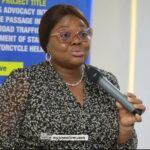As part of the ongoing implementation of its 3-year project seeking to protect children caught up within the legal system of Ghana, the Legal Resources Centre (LRC) has begun the training of some 150 paralegals across the country.
Dubbed “Justice for children: Bridging the gap between legislation and practice”, the goal of the project is to influence national institutions to be more transparent, accountable, human rights-oriented and consistent with the broad outlook of Ghana’s Justice for Children Policy.
The project seeks to bridge the gap between legislation and practice within the broad outlook of Ghana’s justice for children system by ensuring that children in conflict and in contact with the law are adequately protected and their rights promoted through targeted interventions including policy and legislative reforms as well as enhanced service delivery.
One objective of the project is to also ensure the provision of legal assistance and services for at least 350 children in conflict with the law in all the former 10 regions of Ghana.
Thus, with funding from the European Union, the LRC is training interested persons as paralegals across the regions who would be on the 3-year project to provide support and assistance to children in conflict and contact with the law.
At a one-day training workshop in the Sagnarigu Municipality of the Northern Region on Tuesday February 26, 2019, Enock Jengre, Project Officer at LRC said “the training programme is aimed at building the capacities of the LRC paralegals in ensuring the rights of children in the justice for children system in Ghana”.
According to him, selected persons in the Upper East Region would take their turn to participate in the training programme on Wednesday whiles those in the Upper West Region would have theirs on Friday.
Private legal practitioner, Clarke Noyoru, took participants through a training manual developed by the LRC to enable them have a deeper understanding of the ethics and legal frameworks guiding the work of paralegals.
Modules one to three covers how one can use the manual, definition of concepts and framework; four to five covers the Ghanaian legal system and legal aid/services provided; six to seven treats the responsibilities of agencies of state/rights of children, implementation and practical considerations.
Modules eight talks about alternative dispute resolution mechanisms: arbitration, mediation and negotiation whereas modules nine to ten talks about additional forms of arbitration and mediation and alternative dispute resolution centre.
Lawyer Noyoru advised the participants to be confidential with information of parties involved in an arbitration or mediation processes when they start work.
“As an arbitrator, you must not be seen to be biased towards one party. You must be firm and fair to both parties from beginning to end. Never accept any verbal assurance or promise from any party involved in a mediation or arbitration process. Always insist the person puts it in writing.
“Don’t also allow anyone who is not party to the issue at the centre of any mediation or arbitration to be present during your meetings so that the issue that would be discussed does not end up in the public domain”, he said.
Source: https://savannahnewsonline.com/2019/02/26/legal-resources-centre-trains-150-paralegals-for-northern-ghana/




